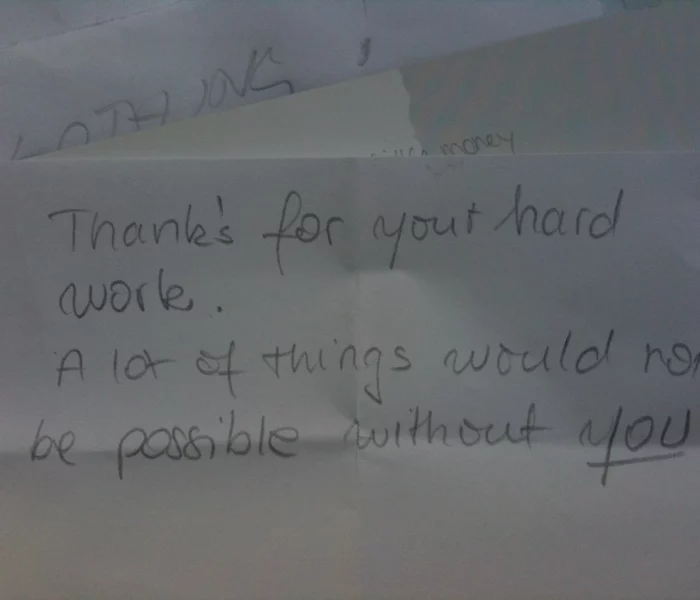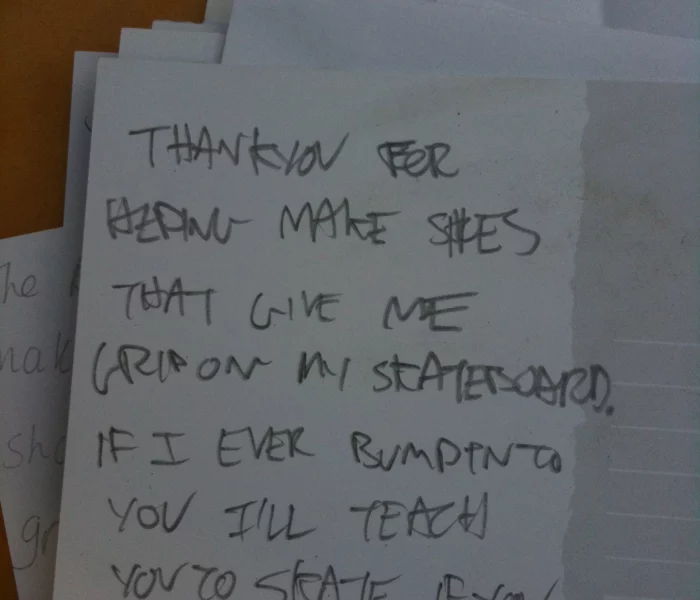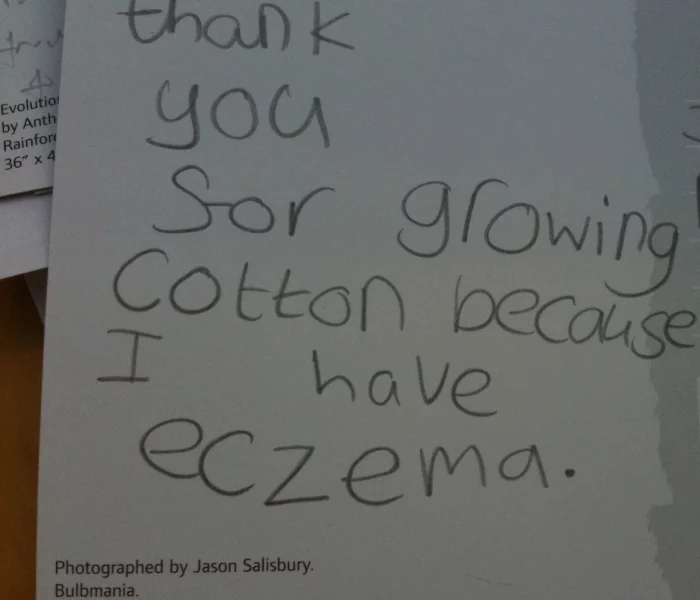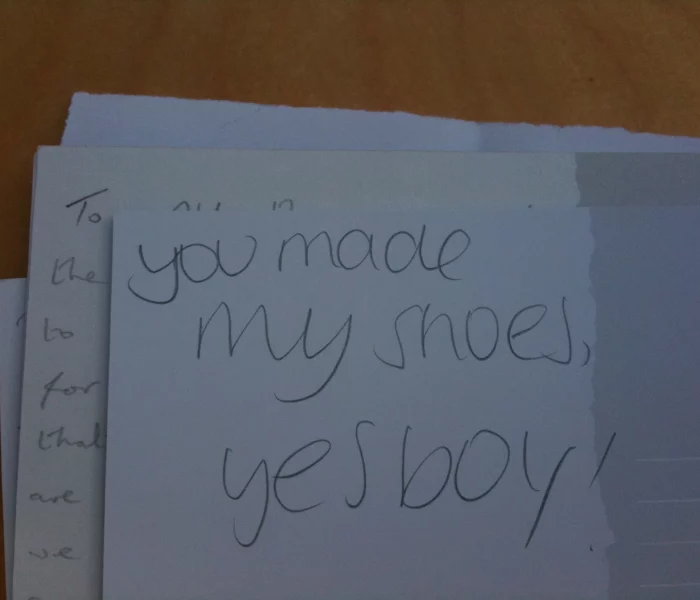
followthethings.com
Back to school
‘What would you say to the person who made your … ?’
A ‘pop the bubble’ icebreaker task for trade justice education
Selected poscards from our wesbite’s launch at the Eden Project in 2011 in slideshow above.
If you’re starting out some trade justice education – at any level, and with any students or public you would like to engage – it’s important to assume that they may already know and care about the issues you want to address. A simple way to find out is to a) encourage them to think about a commodity that’s important to them and then b) ask them what they would say to someone working in its supply chain if they had the opportunity. We have written about a couple of times when we have done this – when we launched followthethings.com in the Tropical Biome at the Eden Project in 2011, and when we were invited to introduce trade justice to a class of primary school students in Exeter in 2015. In both cases, this task needed a good prompt. At the Eden Project, the prompt was the Eden Project – the Tropical Biome was stocked with plants that are the sources of everyday commodities and their labelling and the design of the space made these connections. So we set up our card writing station to catch people as they walked by. In the primary school, the teacher asked the students what their favourite foods were, CEO Ian did some ‘who made my stuff?‘ research on a few, showed the class his findings, and the students were tasked to write to a corporation or supply chain worker that was mentioned with their thoughts. There’s always the option, if the writers (and their parents / guardians where appropriate) give their permission, of making this writing public, posting it online, tagging the corporations, asking for replies. The aim of this task is to gently ‘pop the bubble’ of commodity fetishism in order to encourage an appreciation of the work that has gone into making the things that people love to eat, wear and buy. This summary may be enough for you to try this for yourself. But we’ve also re-published a couple of blog posts below about our experiences of trying this out for ourselves.
Page reference: Ian Cook & Joe Lambert (2025) ‘What would you say to the person who made your … ?‘ followthethings.com/what-would-you-say-to-the-person-who-made-your.shtml (last accessed <insert date here>)
Estimated reading time: 19 minutes.
Continue reading ‘What would you say to the person who made your … ?’ ![]()

 FIND THE LOVE
FIND THE LOVE 



